
Client Thinks They Can Get Out Of Paying A Programmer, Find Out They Messed With The Wrong Guy
Interview With AuthorIt doesn’t matter how big, rich, or unhinged someone or something is, it ultimately can’t outrun the law. Or avoid it. Or circumvent it. Or… you get the point.
Still, companies let hot-headed managers take the helm at negotiating and managing deals. And when it doesn’t go their way, they resort to petty “sue me” tactics without realizing that someone might just take them up on that offer.
Companies can be cheapskates all they want, but they can’t really outrun a contract, let alone the law
Image credits: Snapwire (not the actual photo)
Well, this one company tried, but the person they tried it with did what they asked and sued them—with malicious compliance, of course
Image credits: Visual Tag Mx (not the actual photo)
Image credits: Elevate Digital (not the actual photo)
Image credits: August de Richelieu (not the actual photo)
Image credits: Sora Shimazaki (not the actual photo)
Image credits: Kindel Media (not the actual photo)
Image credits: Hot_Cryptographer552
So, one lawsuit, court verdict, and sheriff’s involvement later, the programmer won and got their money back
Redditor u/Hot_Cryptographer552 shared their story of malicious compliance with us. They told Bored Panda that sharing felt sort of like therapy—while close friends knew of this story, OP never really talked about it, so it felt cathartic to let it out into the internet ether.
So, roughly 18 years ago, they had worked as a programmer full time, but did some work on the side.
One such project ended up being creating a platform from scratch for this one company for $2,000 in 2 weeks. The company agreed, but soon started asking for extra features with each meeting and also introducing new people for whom these features were meant.
This all culminated when one day the manager called and asked for even more features—for the 4th or 5th time now—which now required a full overhaul of what was done.
When confronted about it, the manager didn’t take kindly to it. One thing led to another and the manager essentially said “sue me.”
Cue malicious compliance.
OP did just that. Sued them. And, long story short, the company had zero grounds for not paying, their lawyers essentially admitted it, and the judge ruled they have to pay OP the agreed upon amount. They didn’t, but then the sheriff was involved. And then the money magically appeared. An absolute win all around.
“It felt good, especially to realize my strategy of just telling the judge a simple case worked so well,” shared OP. “I actually laughed out loud when the sheriff called and I heard him threatening to take all their computer equipment over the phone. The whole thing didn’t really feel real to me until the check cleared, though.”
Image credits: Pixabay (not the actual photo)
The comment section was quite active, with folks sharing advice and stories and the programmer providing context
Folks loved the story, giving it 6,600 upvotes as of the moment of this article. And one of the first things commenters tackled was explaining that the way the sheriff managed to get stuff done this fast was actually with the powers and methods vested in him by the law.
You see, in many places around the US, sheriffs maintain wide jurisdiction and primary law enforcement responsibilities. Depending on the state, they might oversee local jails, transport prisoners and detainees, investigate crimes, and serve as coroners. And as was hinted in the story, sheriffs also have the power of forfeiture, meaning they can seize property. So, you can guess why the sheriff’s call fixed things fast.
The comment section is also where we learn that it was a relatively small project, hence the $2,000 price tag. Though some quoted significantly bigger sums.
In retrospect, OP did note that they would’ve done things differently now, like asking for half upfront, building a project plan with milestones with payments for each of them, and the like.
OP told Bored Panda that it was hard to say whether the company was generally chaotic or tactful in their approach with this whole situation: “I only had a small window into their operations at one office, so I’m not sure the level of chaos company-wide. I was just consulting for them on a very part-time basis. I didn’t spend a total of 20 hours face-to-face with them over the months I worked for them. The manager was either chaotic or crafty, I kind of think more of the latter, to be honest.”
Regardless, the company had to end up in the red with its questionable decision-making. OP gathered that besides the $2,000 check they got, there must have been probably a couple thousand dollars spent on the lawyers and management and executive prep for the case, as well as another several thousand for the time all of the employees spent in meetings. All in all, likely over $10,000 in time and effort, plus the money they paid out to OP.
Image credits: Andrea Piacquadio (not the actual photo)
You can check out the story in full on Reddit. But before you do that, share your thoughts, takes, and stories in the comment section below!
The author of the post was active in the comment section, responding with additional info about the situation
Folks praised the programmer for their very maliciously-compliant solution to the problem
Others were keen to share advice
Something similar happened in Washington state. A former employee of Montgomery Ward's sued the company for wrongful termination, to the tune of $150,000. The court ruled in his favor and ordered Ward's to pay up. Weeks went by, but no payment was issued. Big mistake. The plaintiff showed up at the store with the sheriff and a court order. They then proceeded to empty every register and the safe. Total: $50,000.00. The next day, same routine: empty cash registers and safe. Total: $50,000.000. Day Three: same thing.
Finally, Ward's claimed that they were going to appeal the decision. Regardless, by law they were supposed to put the amount of the judgment in bond. The plaintiff was allowed to keep what was taken.
Load More Replies...In small claims court, I'm pretty sure you're not actually allowed an attorney. But in any case, you spec a project out, you do the project, you deliver the project. The moment they add ANYTHING new, you first need to warn them that any new features or functions will incur an additional fee. I don't care if took more time to document it than do it, documentation is still work. Work you must get paid for. You don't have to get obscene over the additional costs. Maybe you only charge them $10 more. Something they'd have no problem accepting. But this sets to the boundary that ANY changes/additions they request will result in them paying more. So when they react round 10 with the entire company causing an entire new program, they aren't surprised when the project suddenly costs quadruple the original agreement. And yes, write into the contract you get paid, at least portion, at each step.
A company my father used to manage won a judgment against a former employee. Former Employee whined that he "couldn't afford to pay it!" The judge smiled and said, "That's okay, I'll put the judgment in an interest-bearing account. The sooner you pay the judgment, the less interest you'll have to pay on it." IIRC, the company only got a fraction of the original judgment, but the CEO got tired of chasing after Former Employee, and figured that something was better than nothing, at least.
Something similar happened in Washington state. A former employee of Montgomery Ward's sued the company for wrongful termination, to the tune of $150,000. The court ruled in his favor and ordered Ward's to pay up. Weeks went by, but no payment was issued. Big mistake. The plaintiff showed up at the store with the sheriff and a court order. They then proceeded to empty every register and the safe. Total: $50,000.00. The next day, same routine: empty cash registers and safe. Total: $50,000.000. Day Three: same thing.
Finally, Ward's claimed that they were going to appeal the decision. Regardless, by law they were supposed to put the amount of the judgment in bond. The plaintiff was allowed to keep what was taken.
Load More Replies...In small claims court, I'm pretty sure you're not actually allowed an attorney. But in any case, you spec a project out, you do the project, you deliver the project. The moment they add ANYTHING new, you first need to warn them that any new features or functions will incur an additional fee. I don't care if took more time to document it than do it, documentation is still work. Work you must get paid for. You don't have to get obscene over the additional costs. Maybe you only charge them $10 more. Something they'd have no problem accepting. But this sets to the boundary that ANY changes/additions they request will result in them paying more. So when they react round 10 with the entire company causing an entire new program, they aren't surprised when the project suddenly costs quadruple the original agreement. And yes, write into the contract you get paid, at least portion, at each step.
A company my father used to manage won a judgment against a former employee. Former Employee whined that he "couldn't afford to pay it!" The judge smiled and said, "That's okay, I'll put the judgment in an interest-bearing account. The sooner you pay the judgment, the less interest you'll have to pay on it." IIRC, the company only got a fraction of the original judgment, but the CEO got tired of chasing after Former Employee, and figured that something was better than nothing, at least.

 Dark Mode
Dark Mode 

 No fees, cancel anytime
No fees, cancel anytime 



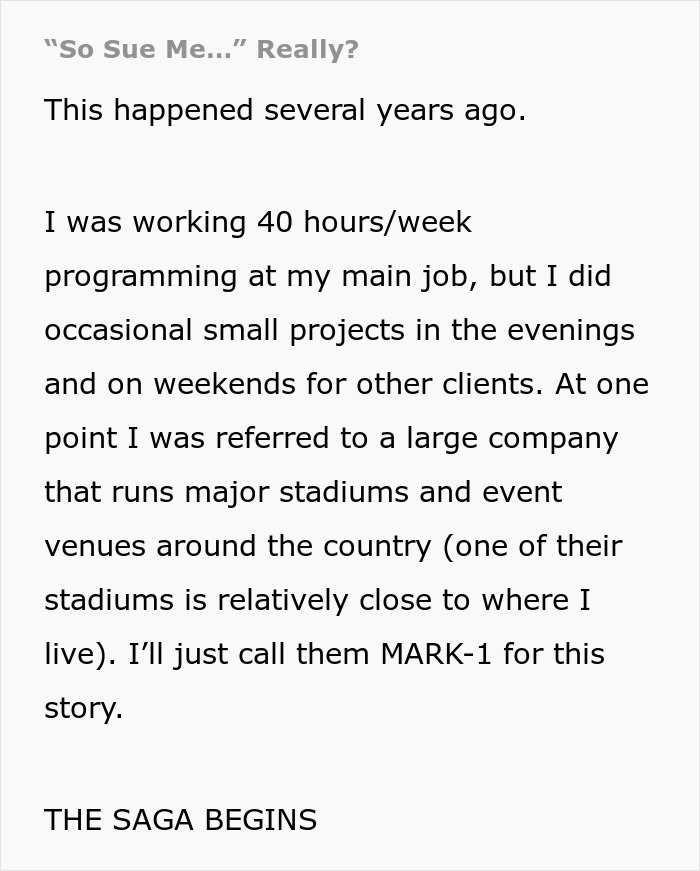
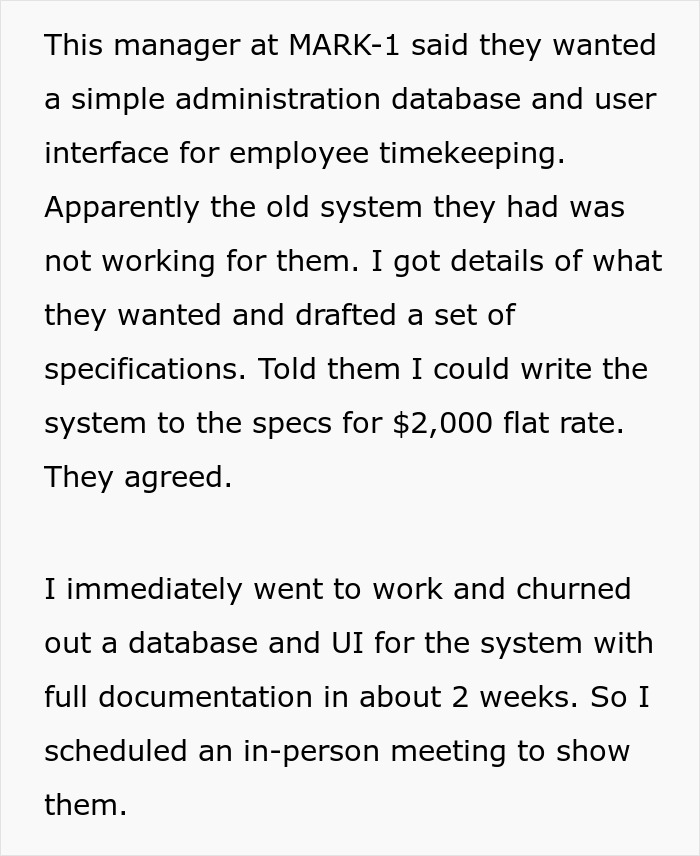
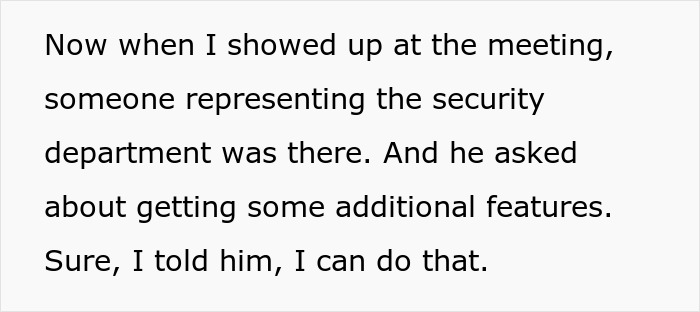
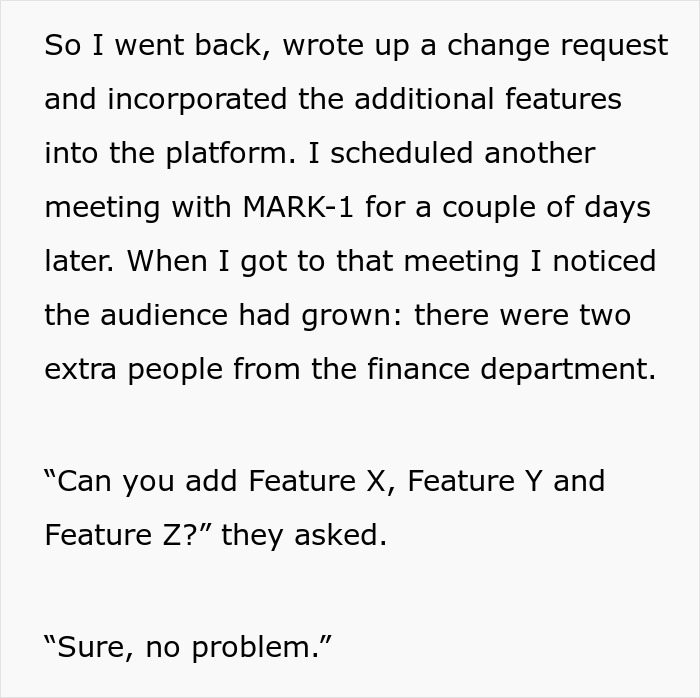

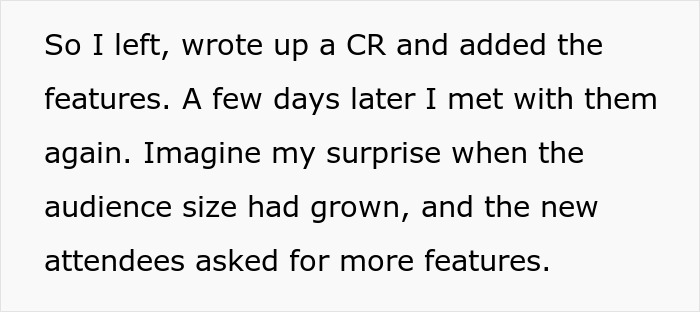
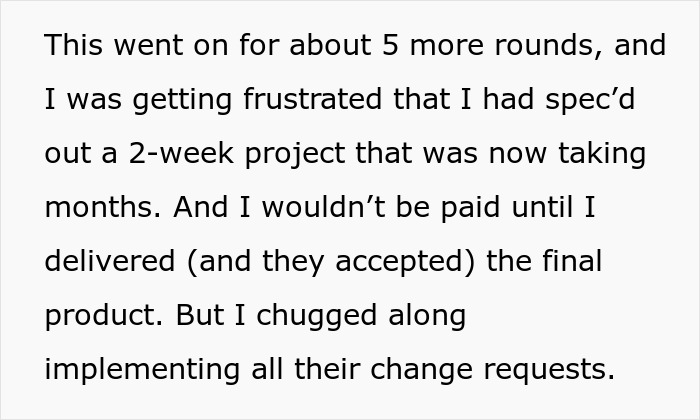
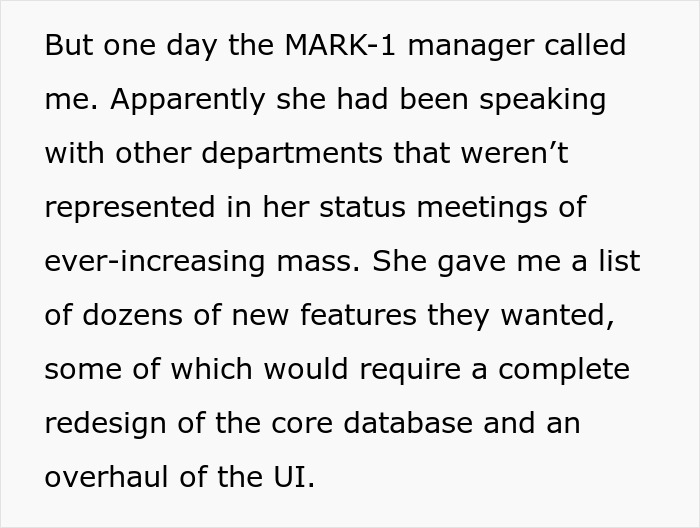


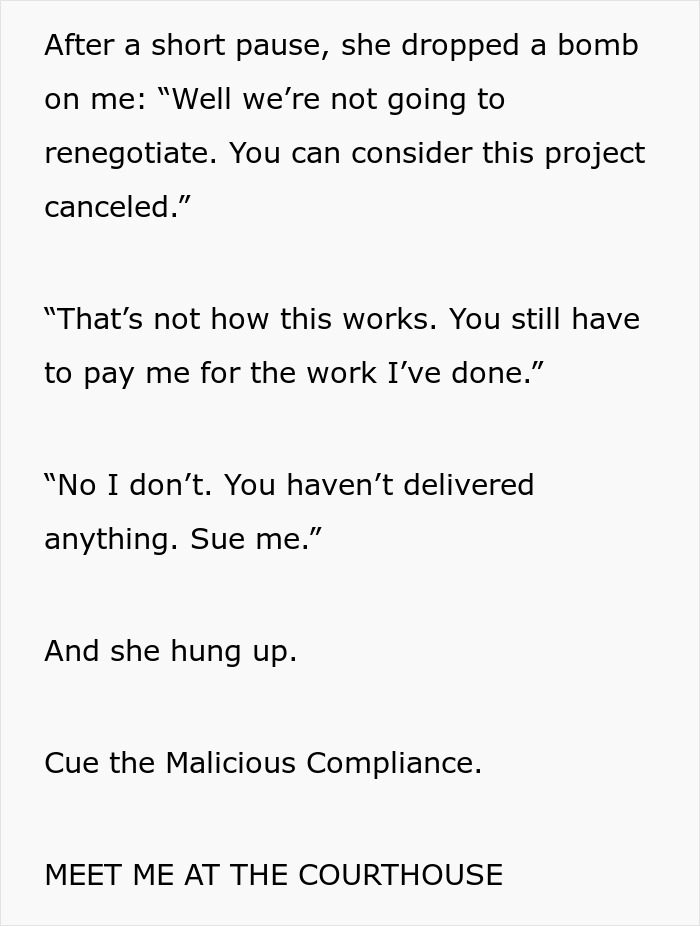
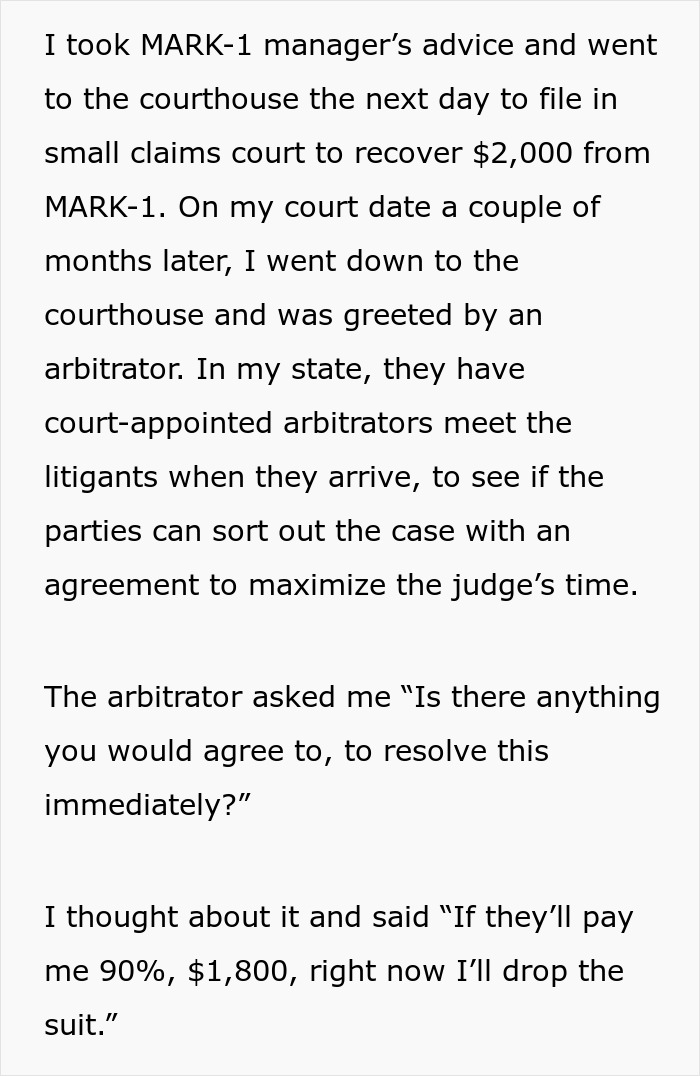
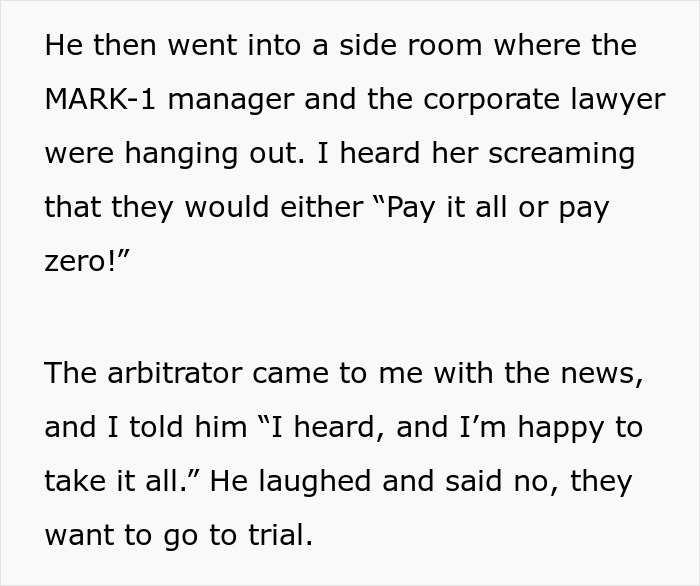

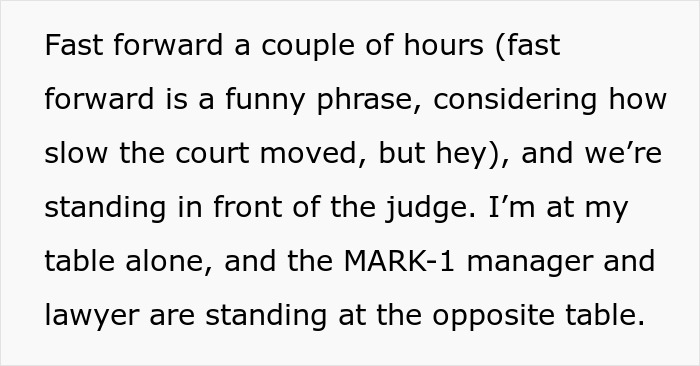

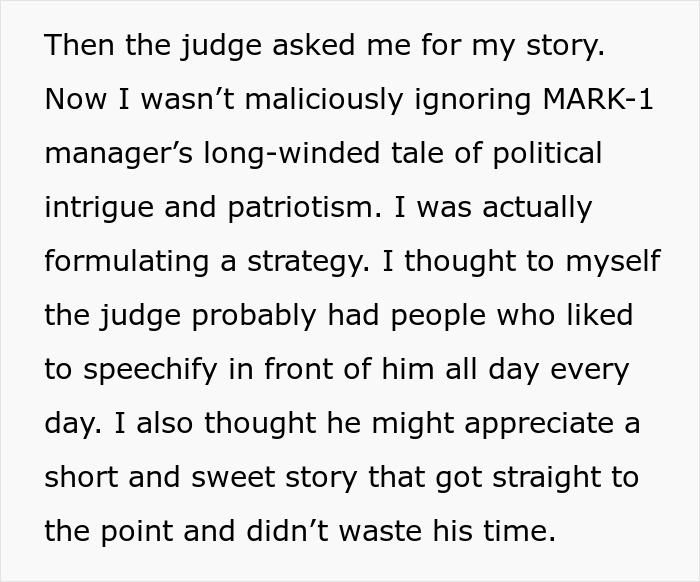
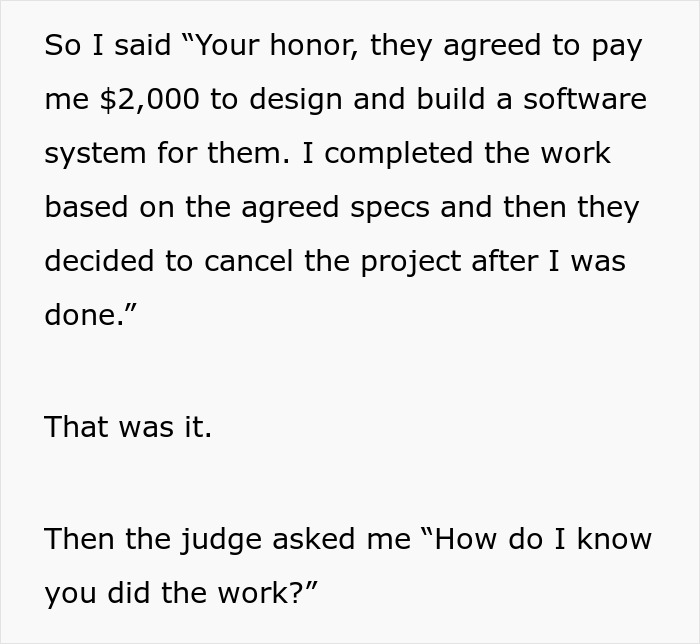

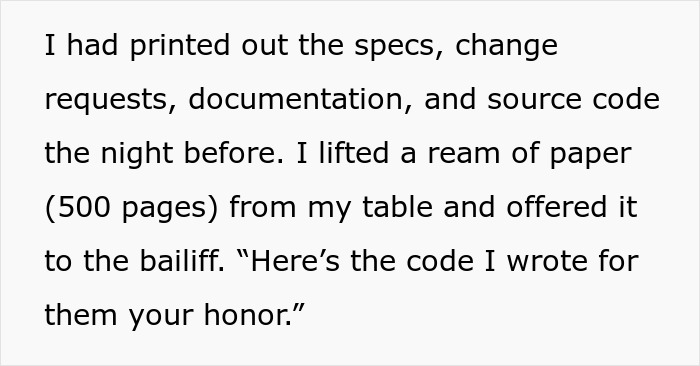
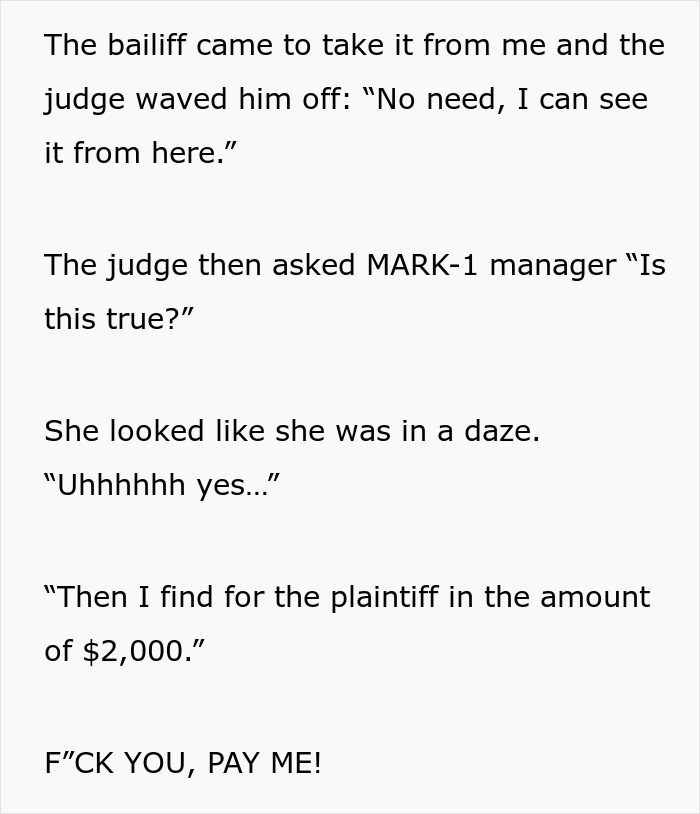
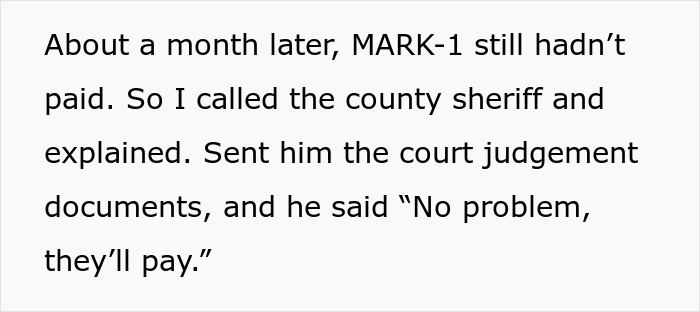
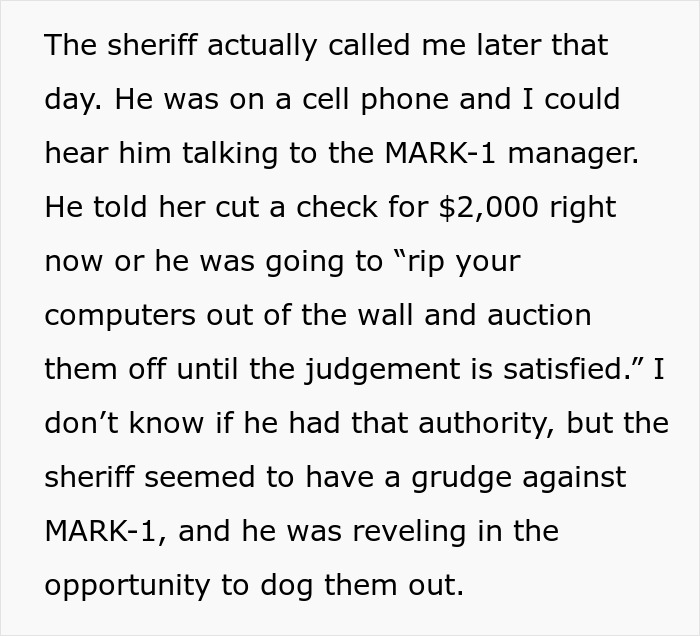

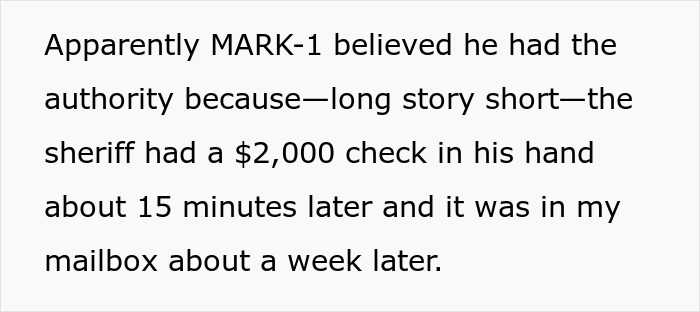


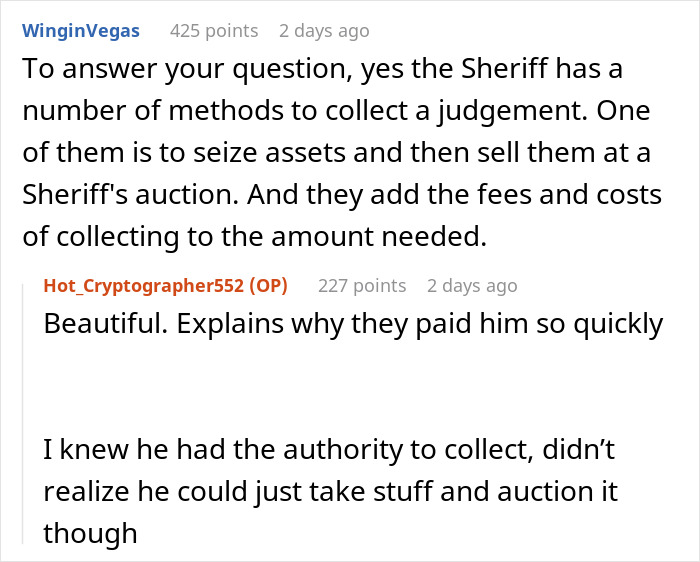
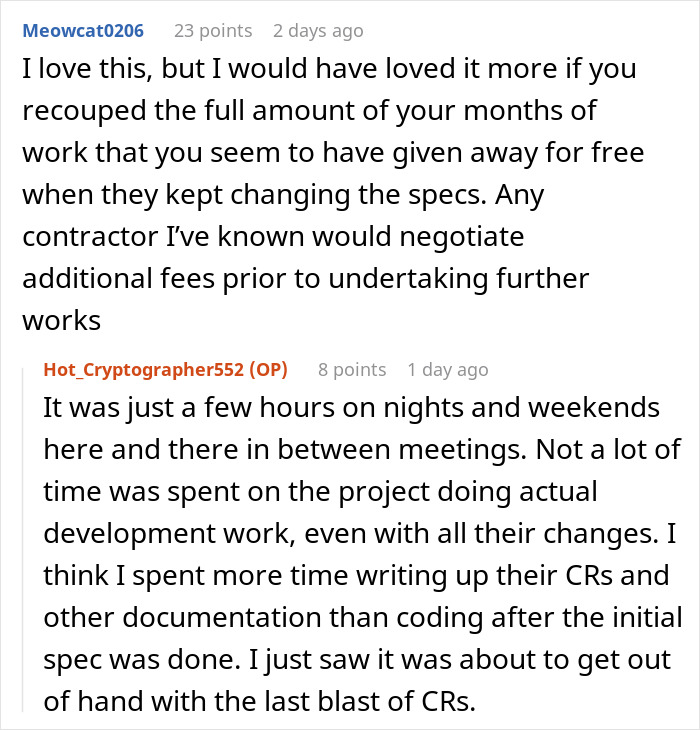
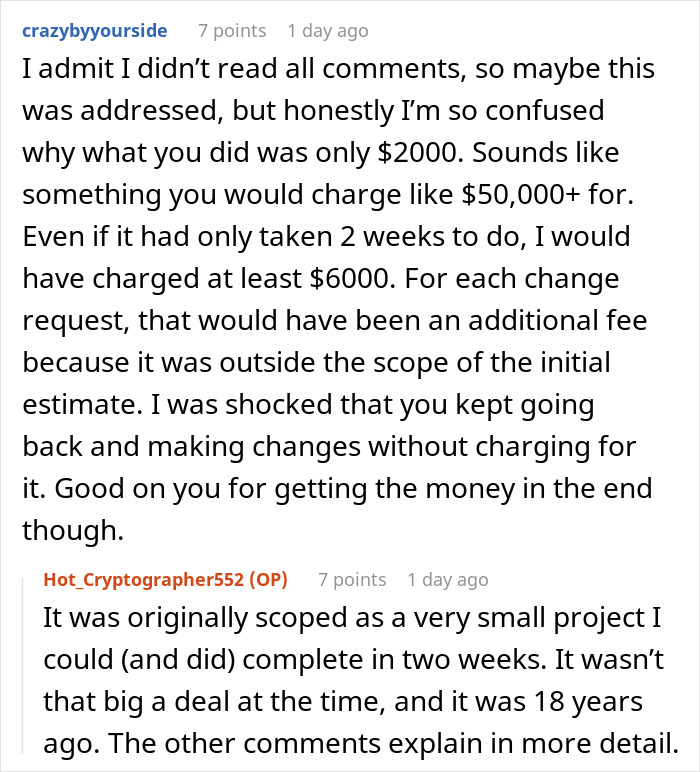
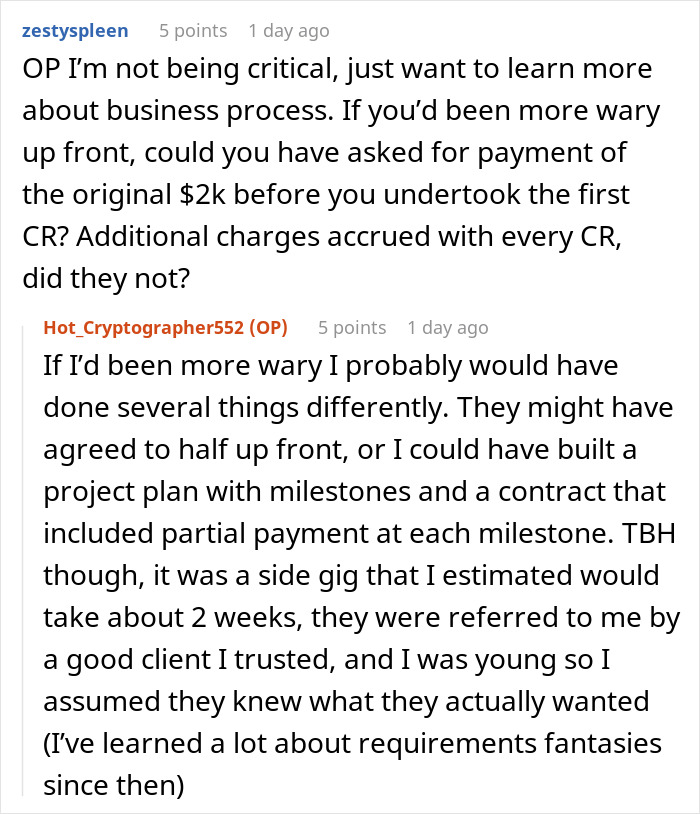
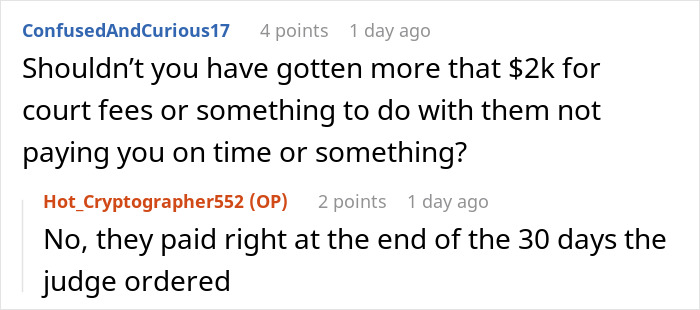
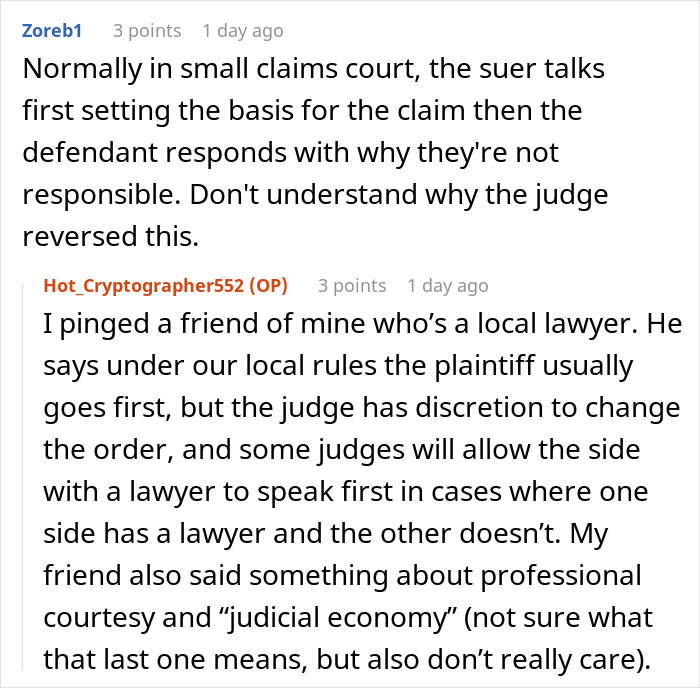
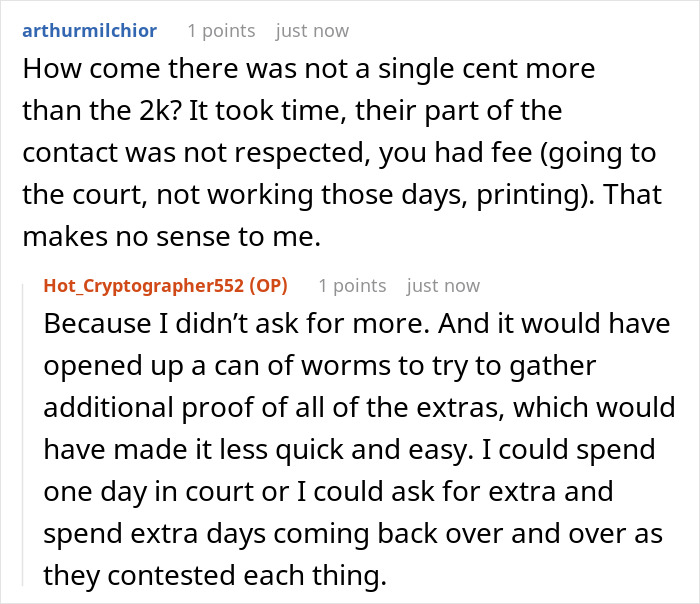
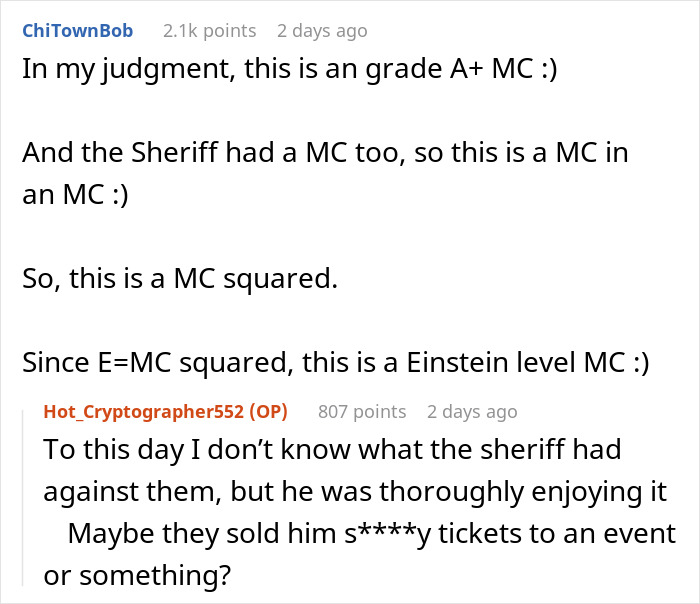
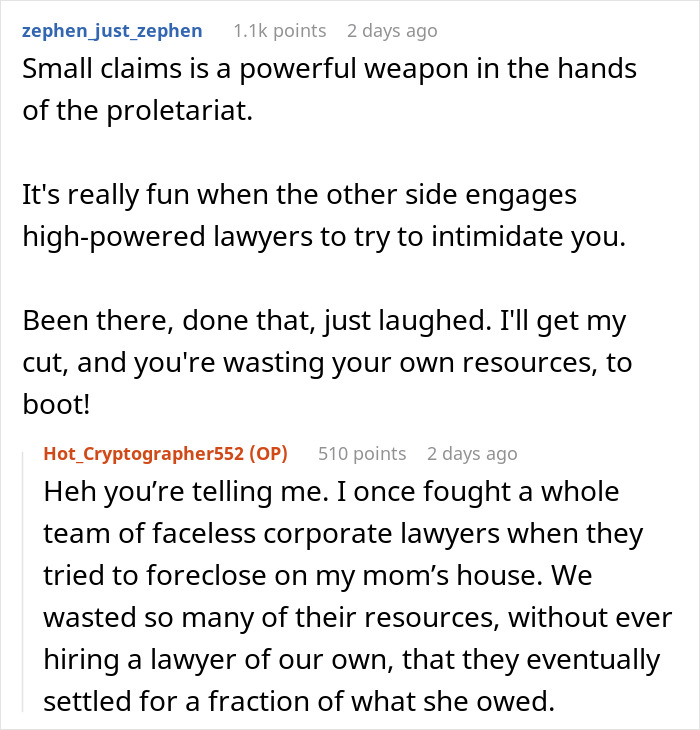



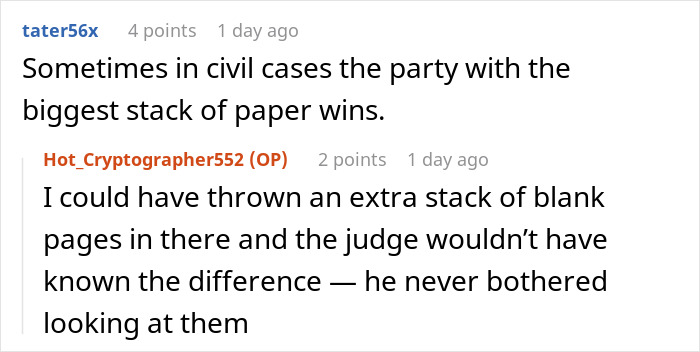



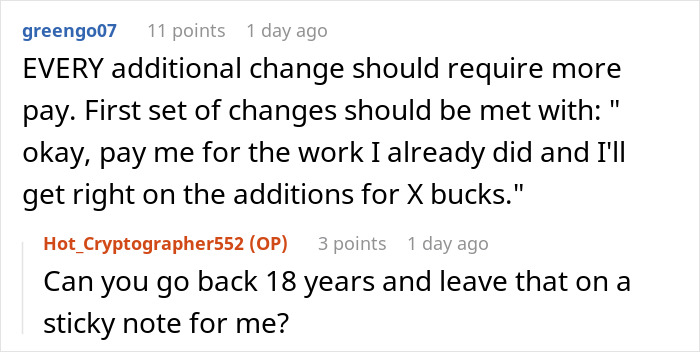

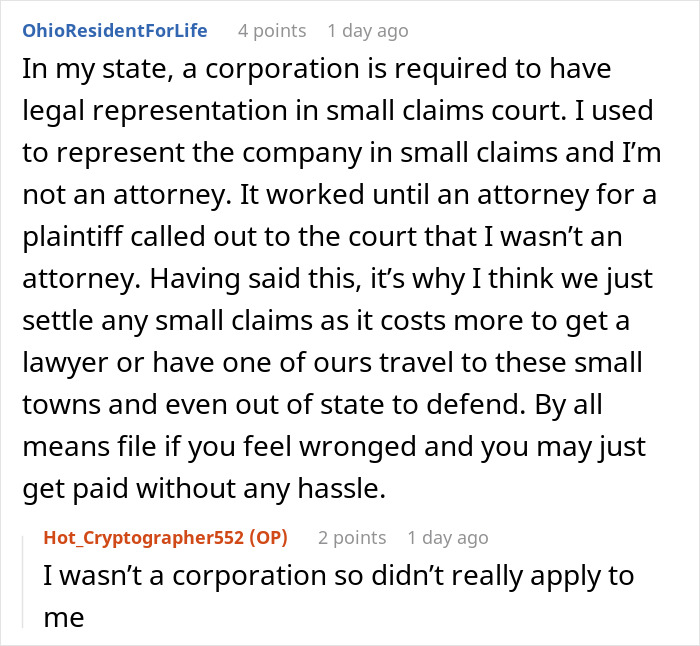
























84
10